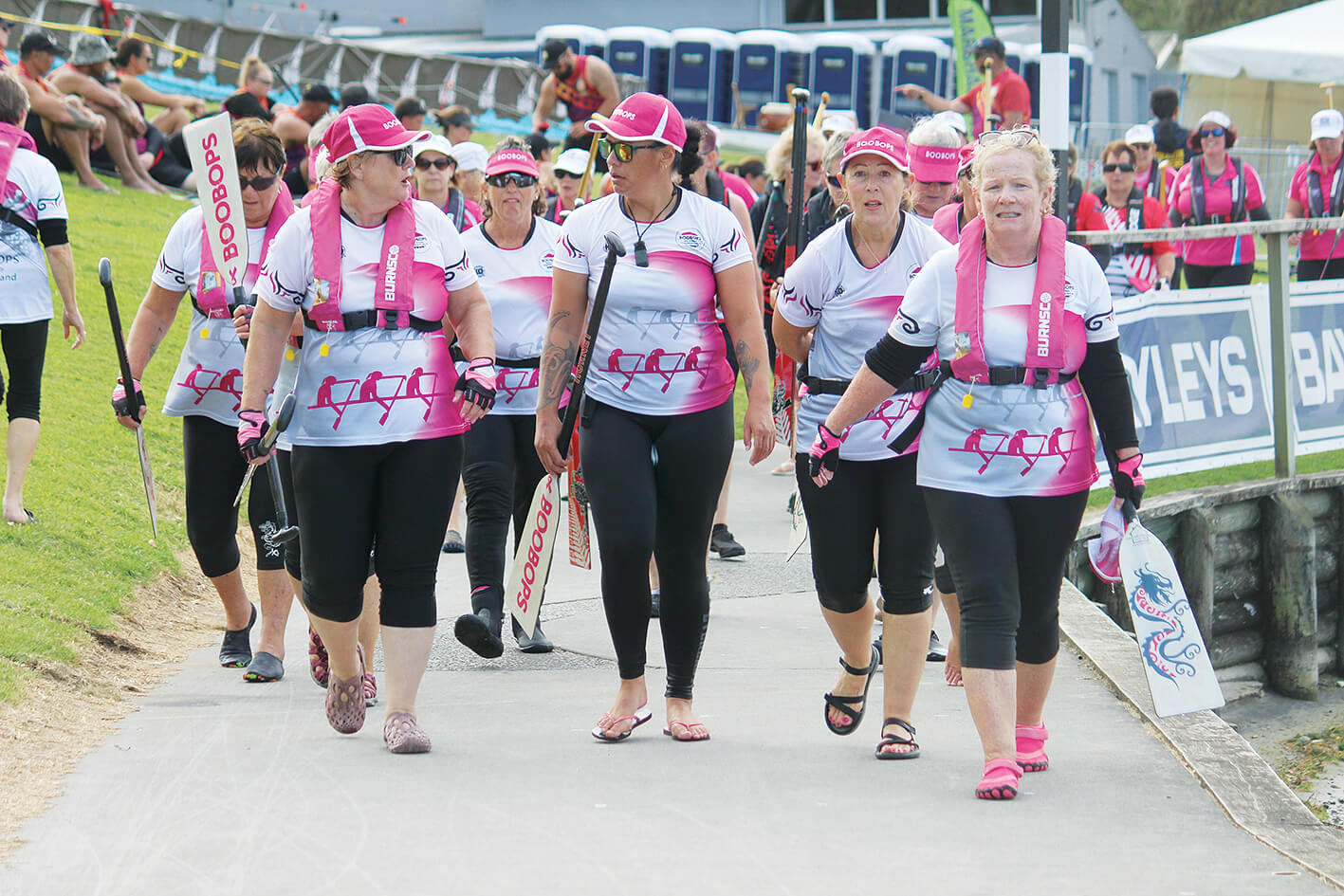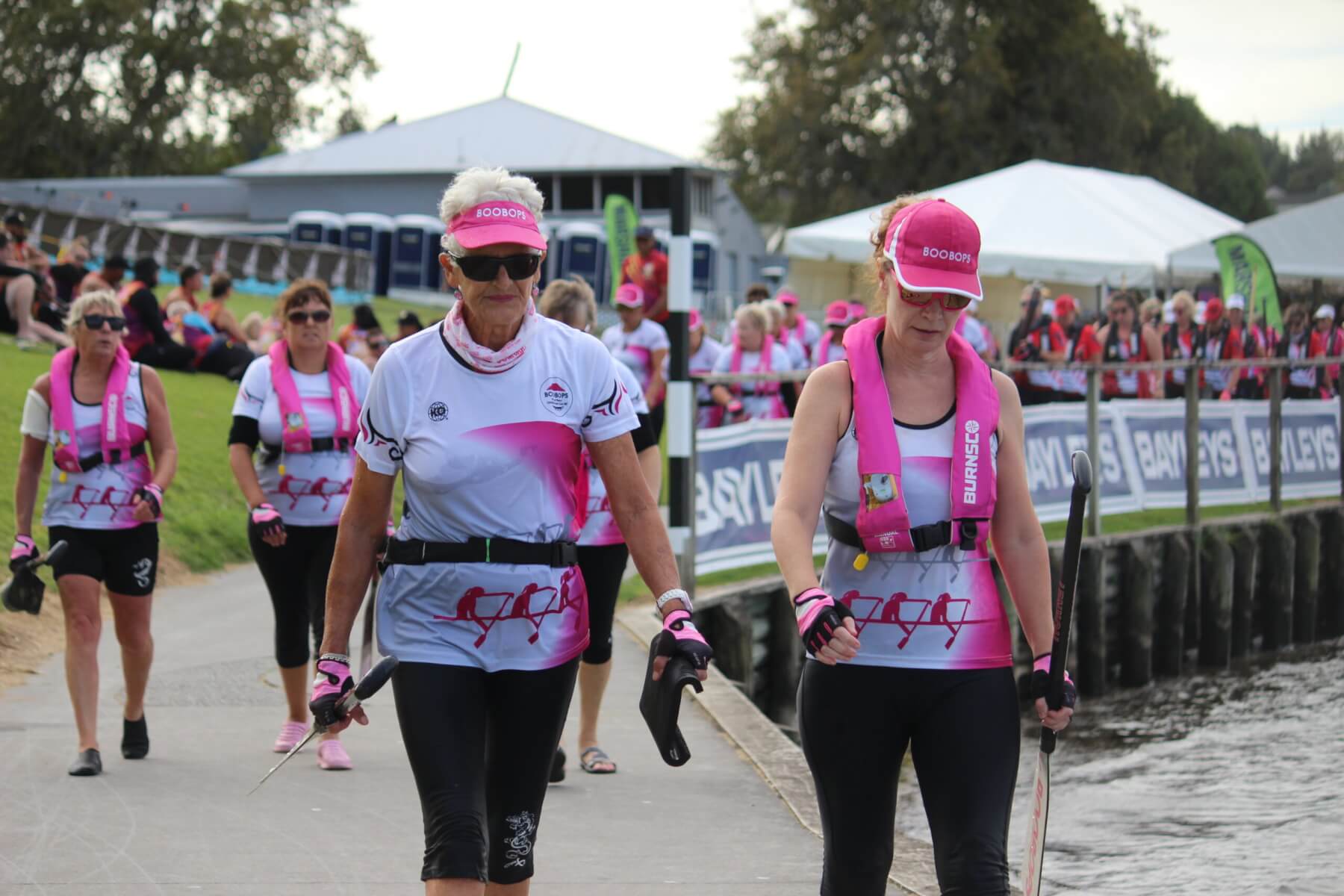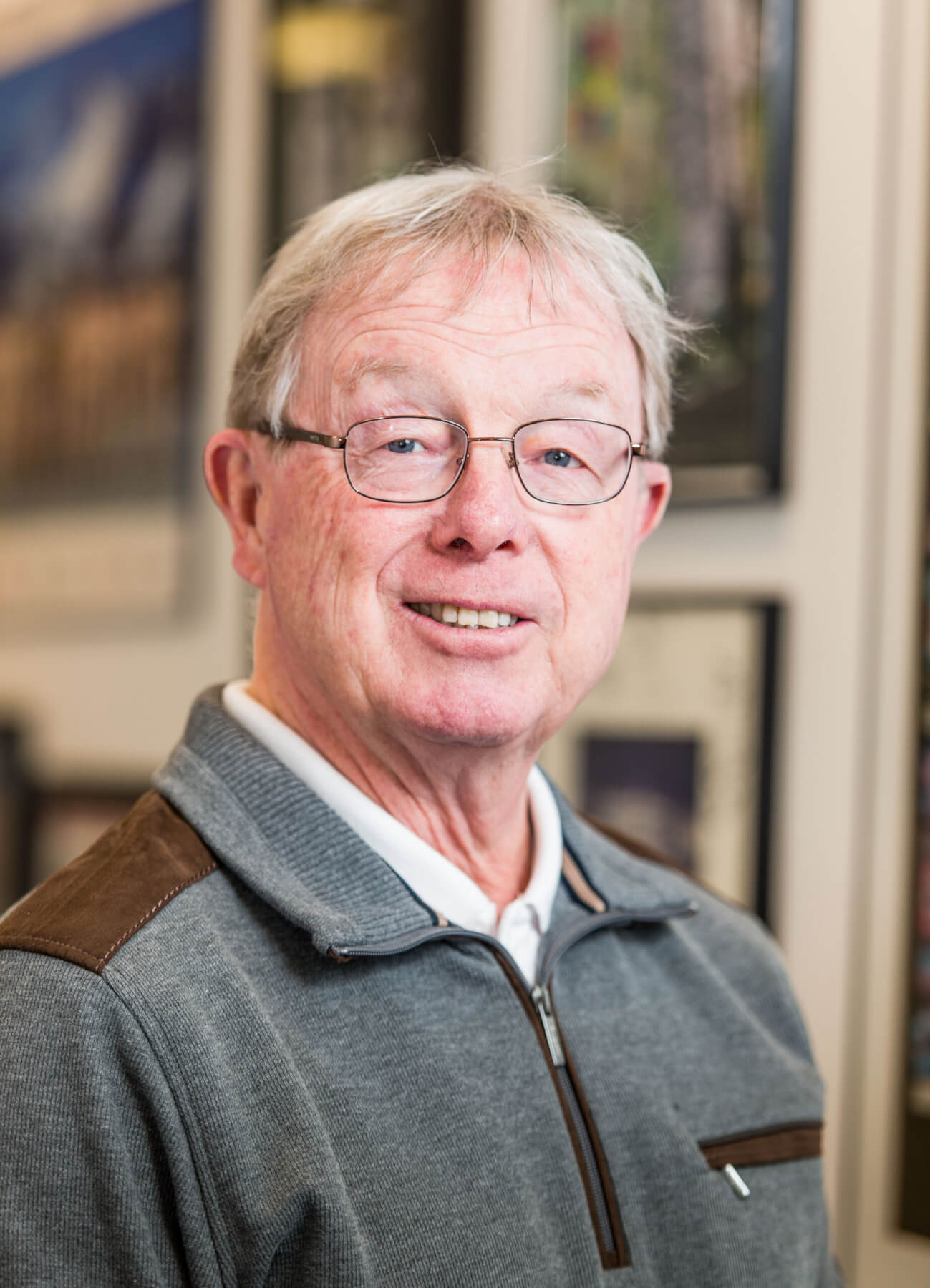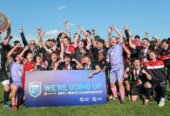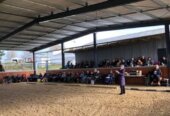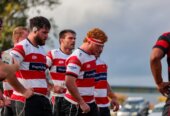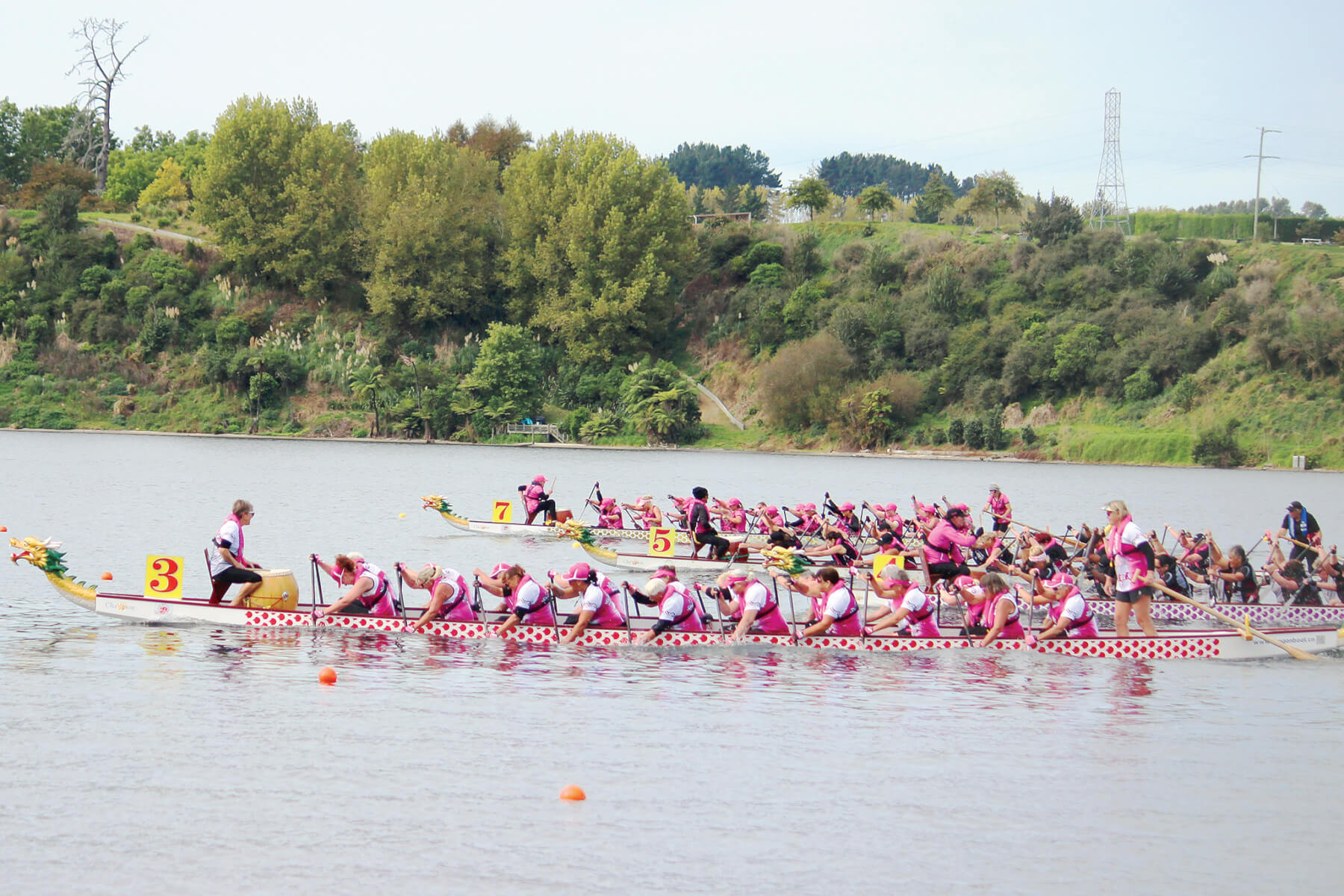
Boobops Chardy paddlers cross the finish line first in their heat at the Dragon Boat nationals on Lake Karāpiro. Caller Joanne Anthony, Ashley Macpherson, Ray Keightley, Julie Howells, Jill Forlong, Dawn Bartie, Julie Sach, Pania Keremeta, Chrissie Rackley, Ruth Oldershaw , Judy Pruden, Dianne Kohi, Sue Webster, Lynley MacKenzie, Jo Warren, Leanne Blackwell, Lynley Guise, Christine Wenzlick, Nicky Morrison, Barbara Rundle, Bridget Prendiville, sweep and coach Judith Butler. Julie Boswell joined the boat for the final. Photo: Mary Anne Gill.
When 2500 competitors hit the water at Lake Karāpiro this week in their pink and fuchsia shirts for one of the world’s biggest dragon boat festivals, the last thing they want is sympathy.
Fine weather and no wind are top of most lists. And yes, they are all breast cancer survivors each with their own story to tell, but as International Breast Cancer Dragon Boat Festival president Meri Gibson says, cancer is the last thing on their minds.
“We’re here to race, we’re here to be competitive,” she says.
“Don’t ever call us sick old ladies, ever.”
The festival, held every four years, is taking place in the southern hemisphere for the first time. It is expected to generate more than $10 million to the local economy.
An economic study done after the 2014 event was held in Sarasota, Florida in the USA put the benefit at $7-$10 million and estimates from Florence in Italy five years ago put it at 10 million Euros – $17.5 million.
Accommodation in Waipā, Waikato and even Bay of Plenty has been booked out for three years within days of the announcement the festival was coming to Karāpiro.
“We have people staying as far away as Rotorua and Tauranga. You (Waikato) need more accommodation,” says Gibson.
- Boobops Chardy paddlers, from left: Linley McKenzie, Julie Sach, Judy Pruden, Pania Keremeta, Jill Forlong and Sue Webster. Photo: Mary Anne Gill.
- The two Boobops strokes (front paddlers) Rae Keightley (76 years old) and Ashley Macpherson. Photo: Mary Anne Gill
The biggest single expense will be transport and the budget for that is $350,000.
Put dragon boat racing and breast cancer in any search engine and hundreds of stories pop up most telling you teams are on their way and dragon boat racing for breast cancer survivors is part of an international movement with hundreds of teams from 35 countries.
Founder of the movement was Canadian sports medicine physician Don McKenzie who saw the benefits of dragon boat racing for breast cancer survivors.
The myth was any repetitive upper body motion – such as raking or playing tennis – would cause lymphedema or swelling.
Dragon boat racing started in China centuries ago. The boats usually hold 20 paddlers, each
with one oar and sitting two-by-two, plus a steer and drummer to keep everyone in time.
“It’s the strenuous upper body exercise that helps us,” says Gibson.
“What it does is allow us to take back control of ourselves and our bodies.”
Training can be exhausting.
Tauranga Girls’ College chemistry teacher Bridget Prendiville, who competes for the Boobops team, is one of 18 newbies in the team competing this week.
Boobops have two boats – Chardy and Savvy (named after the wines) – and competed at the New Zealand Dragon Boat nationals on Saturday. They won the 2000m and 500m Breast Cancer Survivor finals at Lake Karāpiro.
“It’s a lot of training but well worth it,” said Prendiville.
Boobops change their names to Aroha (Savvy) and Moana (Chardy) for the international event.
The welcome for the 6000 plus competitors and supporters will be held in Cambridge tomorrow (Friday) from 3pm with a street parade followed by a party in Victoria Square until 6pm. Racing starts on Saturday and ends with prizegiving on Sunday.
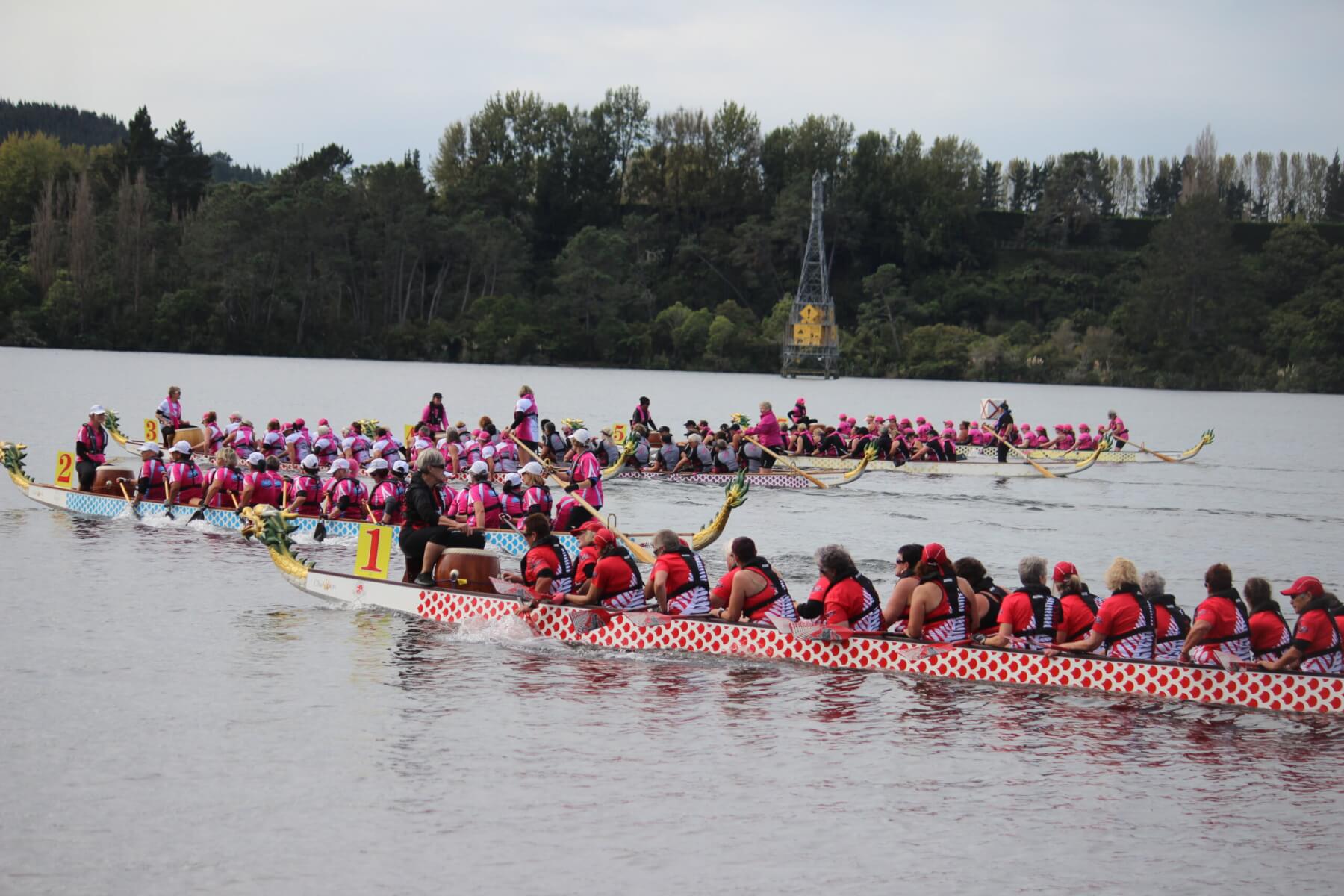
Dragon boats competing in the nationals at Lake Karāpiro on Saturday included breast cancer survivors from teams Abreast of Life (1), Busting with Life (2), winners Boobops Chardy (3), CanSurvive (4), Waikato Treasure Chests (5), Boobops Savvy (6) and Pink Dragons (7). Photo: Mary Anne Gill.



